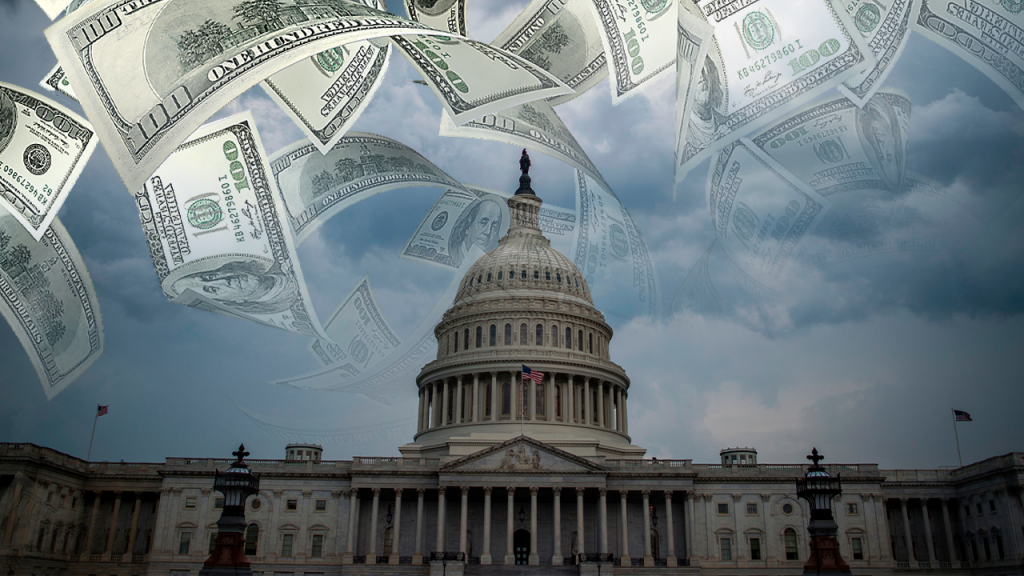Government Shutdown Enters Second Week with No Resolution in Sight
As the 2025 government shutdown approaches its second week, Washington remains gridlocked with Democrats and Republicans unable to reach a federal funding agreement. This marks the first government shutdown since 2019, when federal agencies were closed for 35 days. The political blame game is in full swing, with Democrats accusing Republicans of allowing healthcare premiums to increase for millions of Americans, while Republicans counter that Democrats are endangering vulnerable citizens by holding the government hostage for partisan demands. Despite the current drama, political strategists from both sides of the aisle suggest that the shutdown’s impact on the upcoming 2026 elections may be minimal compared to other pressing issues facing American voters.
The shutdown stalemate centers on a continuing resolution (CR) that would extend current federal funding levels for seven weeks and include $88 million in security funding for lawmakers, the White House, and the judicial branch—a provision that has bipartisan support. However, House and Senate Democrats, frustrated at being sidelined in federal funding discussions, are pushing for an extension of enhanced Obamacare subsidies that were implemented during the COVID-19 pandemic. These enhancements would expire by the end of 2025 without congressional action. While Republican leaders have expressed willingness to discuss healthcare credit reforms, they reject including these measures in the temporary seven-week funding bill, leading to a political standoff that has now shut down the government.
Political strategists interviewed by Fox News Digital have largely downplayed the shutdown’s potential impact on the 2026 elections. GOP strategist Doug Heye noted, “Every time there has been a shutdown, there have been myriad of stories on winners and losers, who gets the blame, what does it mean for the elections, etc. And yet, every time the result is the same—voters aren’t thinking about the last shutdown when they vote.” Heye pointed to historical precedent, mentioning that Republicans supposedly “lost” the 2013 shutdown, yet saw zero impact on the 2014 election results. While acknowledging that this shutdown could potentially be different, he emphasized that there’s currently no evidence suggesting it will significantly influence voter decisions in 2026.
Democratic and Republican strategists alike agree that economic concerns will likely overshadow shutdown politics when voters head to the polls next year. Democratic strategist Mike Nellis observed, “Ultimately, what’s going to decide the midterms next year is going to be the economy. People are very upset about the economy. They’re very upset about inflation. They were promised that everything was going to get less expensive. Now everything’s more expensive.” John Feehery of EFB Advocacy, who previously served as press secretary to former Republican House Speaker Dennis J. Hastert, concurred that while the blame game continues in Washington, average Americans “blame both sides, and they don’t seem to really take it out on whoever the party in power is.” Brad Bannon of polling firm Bannon Communications Research similarly predicted that inflation trends over the next year would have far more electoral impact than the current shutdown.
In the short term, public opinion polling suggests Republicans may bear slightly more blame for the current impasse. A recent Washington Post poll showed 47% of Americans blaming Republicans for the shutdown, compared to 30% blaming Democrats, with 23% remaining undecided. Mike Nellis suggested this trend reflects the fact that Republicans currently control the House, Senate, and White House, noting that “typically, neither party looks good during a shutdown, just broadly. But the party in power gets blamed for what’s happening.” John Feehery similarly predicted that while he personally believes “Democrats clearly are to blame for this, because this is their strategy,” Republicans would likely “get blamed slightly more than the Democrats,” particularly among independent voters who, he suggested, typically dislike government shutdowns.
As the shutdown continues with Senate Democrats rejecting the GOP’s funding plan for a fourth time on Friday, Americans are witnessing another chapter in Washington’s dysfunction. The immediate consequences affect federal workers and services across the country, but the long-term political impact remains uncertain. Political strategists from both parties agree that while the shutdown creates short-term political winners and losers within the Beltway, voters’ decisions in 2026 will likely hinge on kitchen table issues—particularly economic conditions and inflation—rather than memories of this governmental impasse. With thirteen months until the next election, the shutdown represents another moment of partisan division in American politics, but perhaps not one that will fundamentally reshape the electoral landscape.


